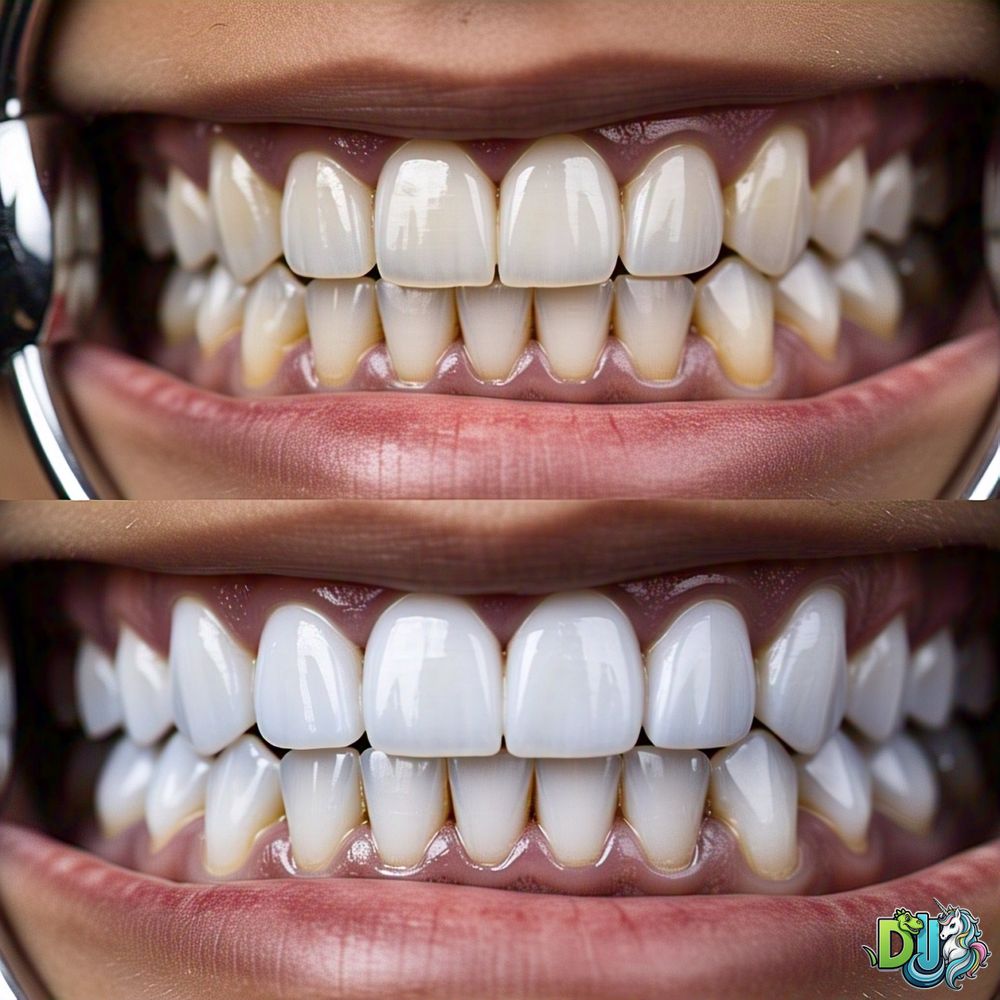Blog
How Expensive Are Veneers?
How Expensive Are Veneers? A Comprehensive Guide to Costs and Options
Introduction
Veneers have become an increasingly popular choice for those seeking to enhance their smile and boost their confidence. However, for anyone considering this cosmetic dental procedure, one of the first questions that come to mind is: How expensive are veneers? The answer to this depends on several factors such as the type of veneer, the dentist’s experience, and the geographic location of the procedure. In this guide, we’ll explore the different aspects that influence veneer costs and offer insights into affordable alternatives and practical tips to manage expenses.
What Are Dental Veneers?
Before diving into the costs, it’s essential to understand what dental veneers are and how they can transform your smile. Veneers are thin, custom-made shells made of porcelain or composite resin designed to cover the front surface of your teeth. They are a cosmetic solution to a variety of dental issues, such as:
- Discolored or stained teeth
- Chipped or broken teeth
- Gaps between teeth
- Misaligned or uneven teeth
Veneers offer a natural look and are a long-lasting option for improving your smile. But the price you pay for them can vary significantly based on several factors, which we will break down in detail.
Types of Veneers and Their Associated Costs
Understanding the type of veneers available is critical to knowing how much you’ll pay. The two most common types of veneers are porcelain veneers and composite veneers, each with distinct characteristics and costs. Let’s take a closer look at each:
Porcelain Veneers
Porcelain veneers are known for their durability and a highly realistic appearance. These veneers are custom-made in a dental lab, offering a perfect fit and natural tooth-like sheen.
- Cost: On average, porcelain veneers can range from $900 to $2,500 per tooth, making them a more expensive option. The cost is influenced by the materials used, the dentist’s expertise, and your location.
- Advantages: They are highly resistant to stains and can last up to 10-15 years with proper care.
- Disadvantages: The high price tag and the fact that this procedure is usually irreversible due to the removal of a small portion of the tooth enamel.
Composite Veneers
Composite veneers are a more affordable alternative to porcelain. These are made from resin materials and are applied directly to the teeth by the dentist.
- Cost: Composite veneers typically cost between $250 and $1,500 per tooth, depending on the complexity of the procedure and the geographic area.
- Advantages: Lower cost, quicker application, and less invasive.
- Disadvantages: They are not as durable as porcelain veneers and may only last 5-7 years before requiring replacement or repair.
Lumineers
Lumineers are a brand of porcelain veneers that are ultra-thin and require minimal tooth preparation.
- Cost: They can range from $800 to $2,000 per tooth.
- Advantages: Less invasive procedure since little to no enamel is removed.
- Disadvantages: They may not be suitable for people with severely damaged or misaligned teeth.

Factors That Influence the Cost of Veneers
Several factors can affect the overall cost of getting veneers. Here’s a breakdown of the most significant ones:
Geographic Location
Where you live plays a significant role in the cost of dental veneers. If you are in an urban area or a region with high demand for cosmetic dentistry, you are likely to pay more.
- Urban vs. Rural Areas: Dentists in metropolitan areas often charge higher prices due to overhead costs, while rural areas may offer more affordable options.
- International Options: Some individuals opt for dental tourism, traveling to countries like Mexico or Thailand, where veneers are often cheaper.
Dentist’s Expertise
The skill level and experience of the dentist also impact the cost. More experienced cosmetic dentists or those who specialize in veneers tend to charge higher fees.
- Highly Reputable Dentists: Choosing a top-rated dentist may come with a premium, but it often ensures a more natural look and better results.
- General Dentists: Less specialized dentists may offer veneers at a lower cost, but the quality of work might vary.
Material Quality
Porcelain veneers are more expensive than composite resin veneers because of their durability and aesthetic quality.
- High-quality materials: Porcelain can last longer and resist staining better than composite resin, justifying the higher price.
Number of Veneers
The cost can add up if you’re getting multiple veneers to achieve a uniform smile. Some individuals opt for a full smile makeover, which can easily raise the total cost to tens of thousands of dollars.
- Single Tooth Veneer: If you’re getting just one tooth veneered, the cost will be more manageable compared to multiple teeth.
Additional Costs You Should Consider
Veneers are not a one-time cost. There are other expenses involved that you should keep in mind:
Consultation Fees
Most dentists charge a consultation fee that ranges from $50 to $300. This fee may cover X-rays and a thorough evaluation of your teeth.
Preparation Costs
Before applying veneers, your teeth might need some preparatory work, such as teeth whitening, cleaning, or X-rays. These additional procedures can add $100 to $300 to the total cost.
Maintenance and Repairs
While veneers are durable, they aren’t immune to damage. Replacing or repairing a veneer can cost between $200 and $1,000 per tooth.
Are Veneers Covered by Insurance?
Dental veneers are generally considered a cosmetic procedure and are not covered by insurance. However, there are exceptions:
- Medically Necessary Veneers: If your veneers are deemed necessary for reasons such as repairing damage after an accident, insurance may cover a portion of the cost.
- Consult Your Provider: Always check with your insurance provider to see if any part of the procedure can be covered under your plan.

Affordable Alternatives to Veneers
For individuals seeking a more budget-friendly option, there are several alternatives to veneers that can still help improve the appearance of your smile:
Dental Bonding
Dental bonding is a less expensive cosmetic option where tooth-colored resin is applied to the teeth to repair minor imperfections.
- Cost: It generally costs less than veneers, making it a popular choice for smaller cosmetic fixes.
- Advantages: Quick procedure and more affordable.
Teeth Whitening
If discoloration is your main concern, professional teeth whitening treatments might be a more affordable alternative.
- Cost: Whitening treatments are less expensive than veneers, but they may not address other issues such as chipping or misalignment.
Orthodontics
If you’re dealing with misaligned teeth, orthodontic treatments such as braces or clear aligners can help.
- Cost: While orthodontics can be costly, they provide a permanent solution to misalignment issues, unlike veneers.
Tips for Managing Veneer Costs
If the price of veneers is a concern, here are some tips to help manage the costs:
Dental Schools
Consider seeking treatment at a dental school, where students perform the procedures under the supervision of experienced professionals. This can significantly reduce costs.
Payment Plans
Many dental offices offer financing options or payment plans that allow you to pay for your veneers in installments rather than a lump sum.
Dental Membership Plans
Some dental practices offer membership plans that provide discounts on various procedures, including veneers. These plans can help reduce your overall out-of-pocket expenses.

FAQs About Veneers
Here’s a list of frequently asked questions about the cost of dental veneers, along with clear answers to address common concerns:
1. How long do veneers last?
Porcelain veneers can last between 10 to 15 years, while composite veneers typically last 5 to 7 years with proper care.
2. Can veneers get stained?
Porcelain veneers are highly resistant to stains, but composite veneers can be more prone to discoloration over time.
3. Are veneers painful to get?
The procedure itself is not painful as local anesthesia is used. However, some people may experience mild discomfort after the procedure.
4. Can veneers be removed?
Veneers are permanent, especially porcelain veneers, which require the removal of part of the enamel. Removing them is generally not advised unless they are being replaced.
Conclusion
Veneers offer a transformative solution for achieving the perfect smile, but they come at a price. Understanding the different types of veneers, the factors influencing the cost, and affordable alternatives can help you make an informed decision. Whether you opt for porcelain or composite veneers, or explore other treatments like dental bonding or teeth whitening, your journey to a brighter, more confident smile starts with knowing all your options.
Please visit Dinounicorn.com or Freshmilktee.com to support us. Thank you!
 Skip to content
Skip to content

